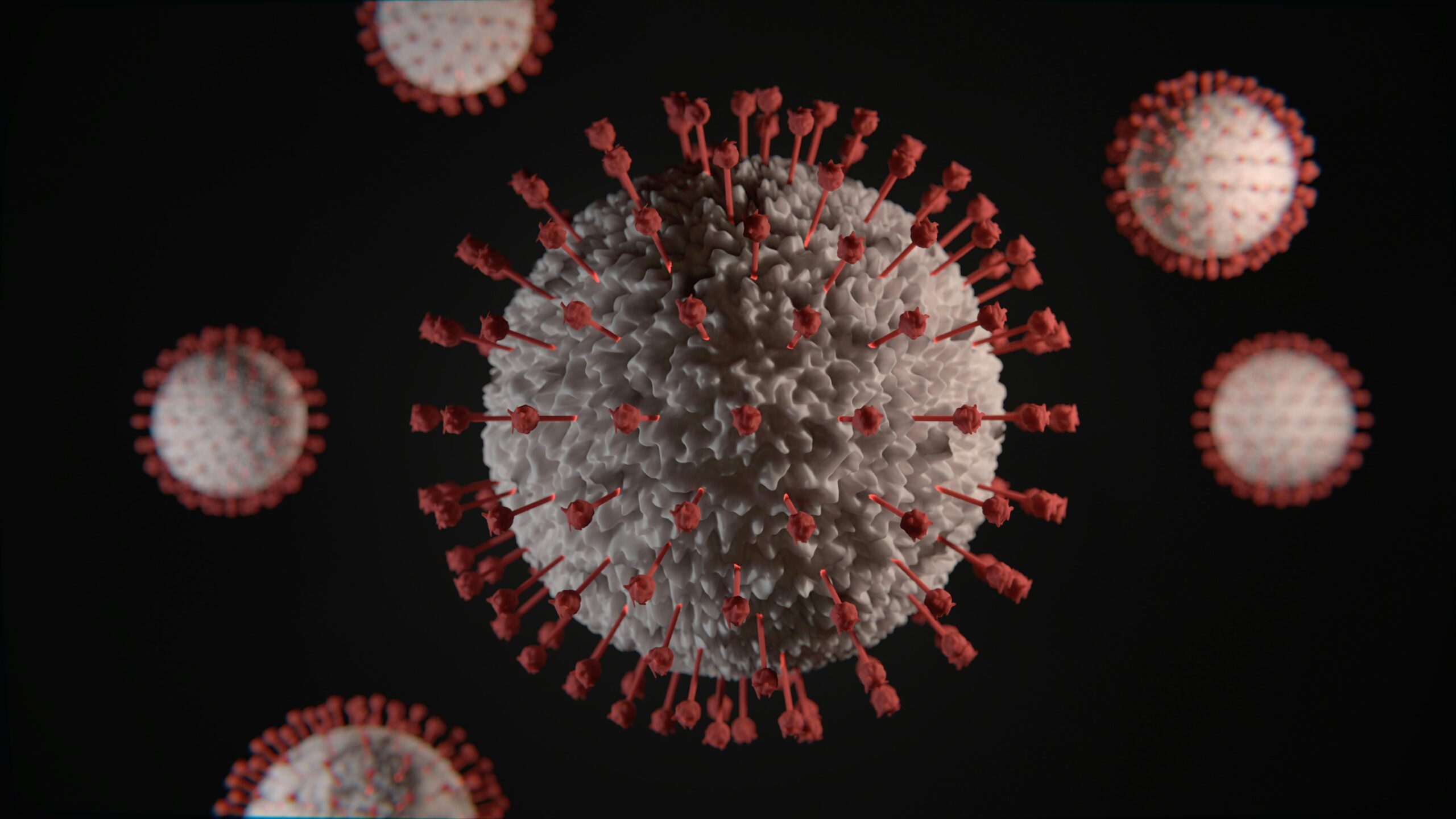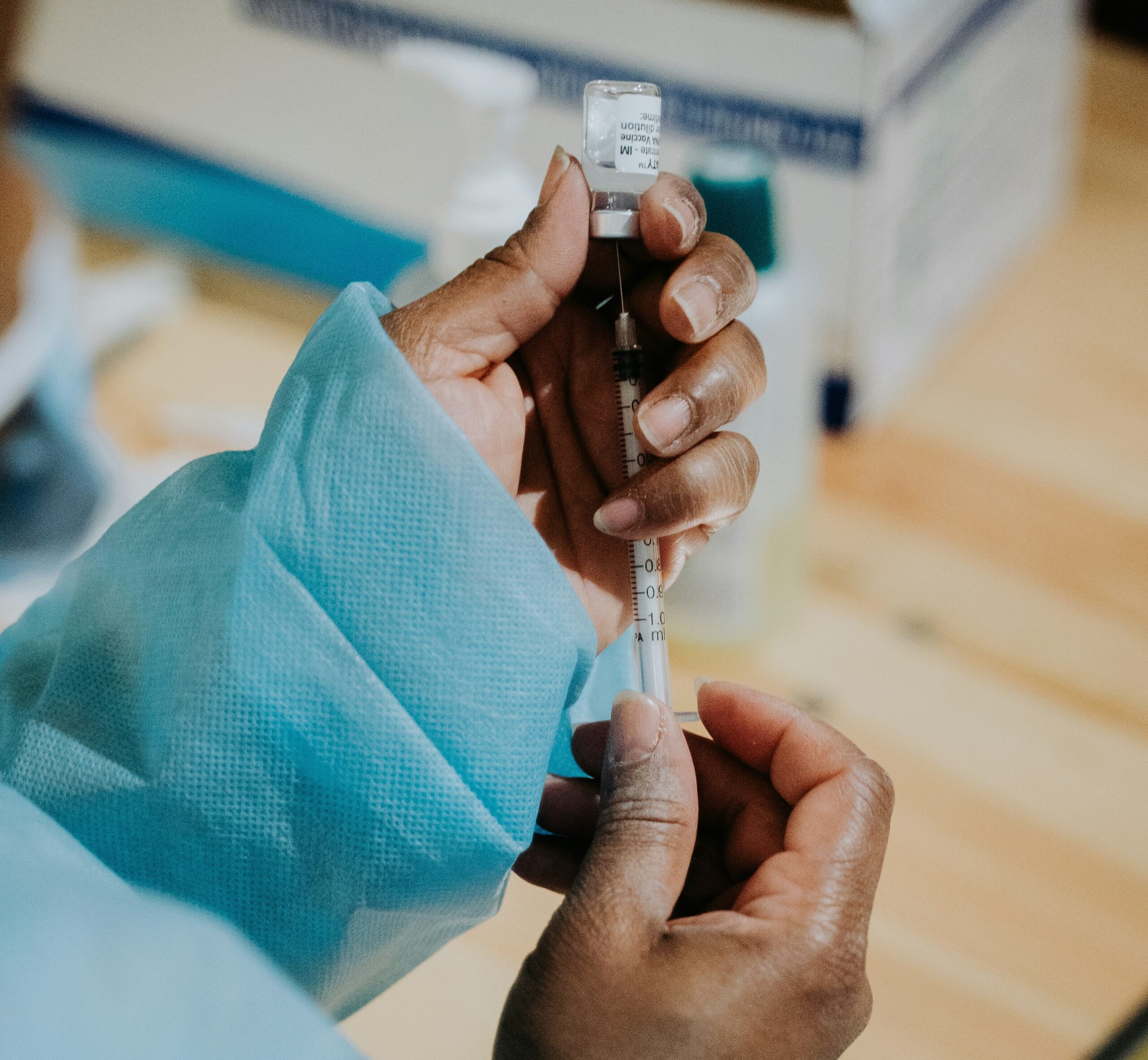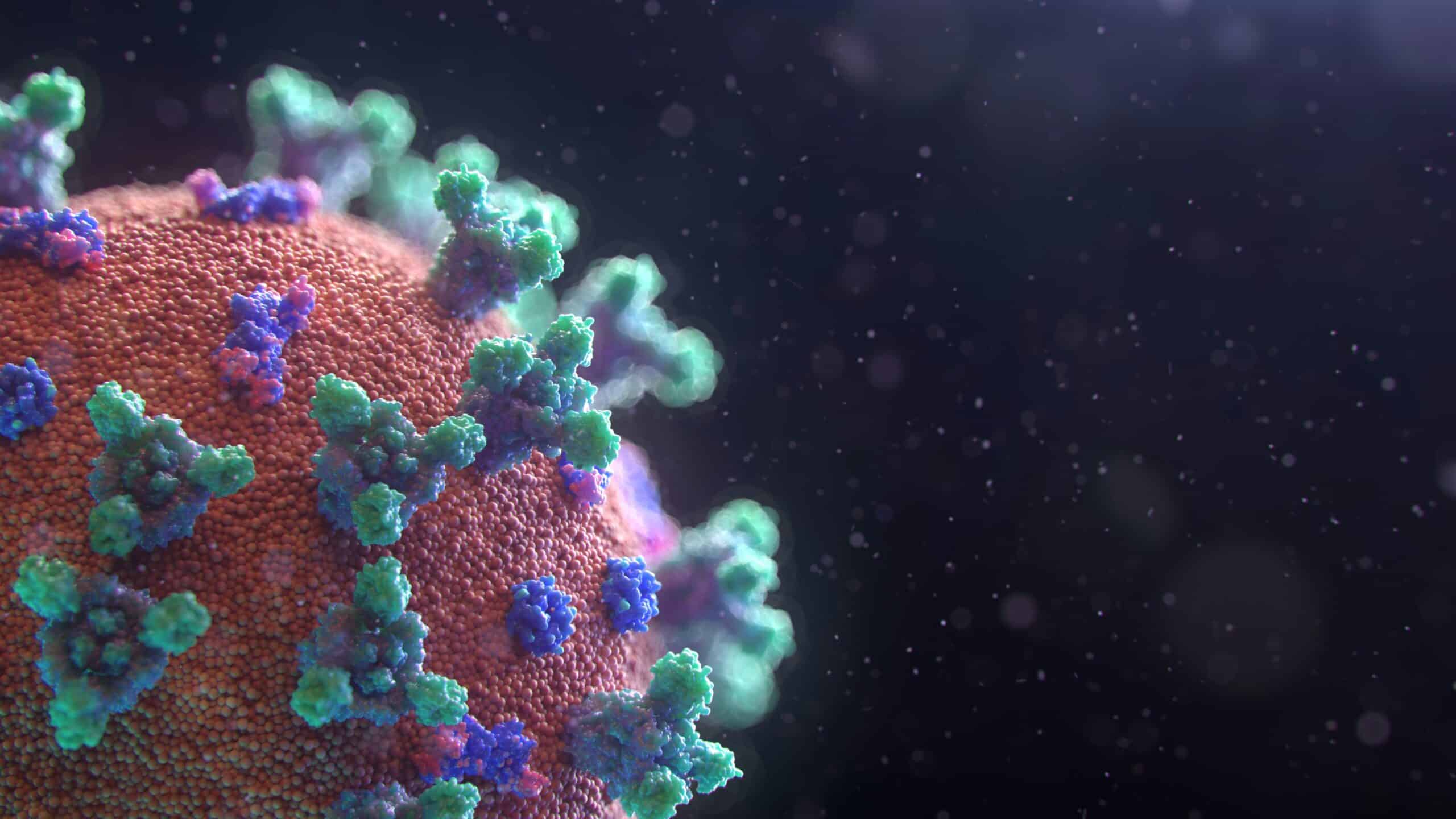
Vaccine Survey
Scientists’ Views on Reasons for Declining Vaccination Rates and Public Confusion
Section 01
Survey Overview and Demographics
General Overview
Study Date: 02.06.22–08.07.22
Geographic Coverage: United States
Expertise:
- 65.24% Biology
- 29.87% Civil and Environmental Engineering
- 4.87% Biochemistry
Response Overview
Sample Size: 831
Valid Responses: 316
Response Rate: 38
Date initial findings posted: 06.28.23
Most recent update: 06.28.23
Days survey in field: 28
Average response time: 10.1
Survey Demographics
Respondent Demographics:
- 39.8% Female
- 60.2% Male
- 100% Academic
- 0% Industry
Language(s): English
Section Overview
This section of the survey asked scientists about their opinions on the reasons why vaccination rates have been declining as well as their perspectives on the factors related to public confusion about vaccination.
Question
Do you believe each of the following are major, minor or not reasons for recent declines in vaccination coverage in the United States?
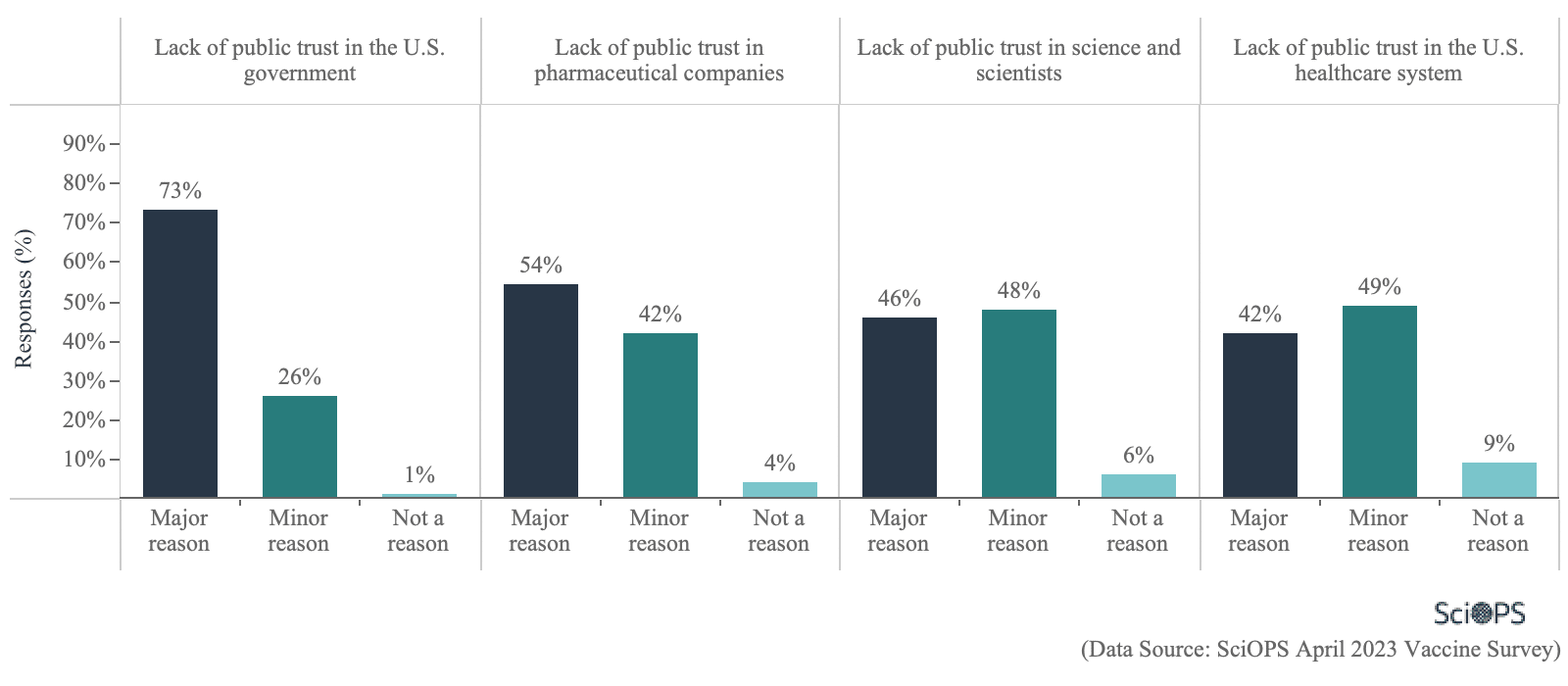
Finding
A majority of scientists responded that lack of public trust in the U.S. government (73%) and in pharmaceutical companies (54%) are major reasons for declining vaccination coverage.
Less than half of the scientists responded that lack of public trust in science (46%) and the U.S. healthcare system (42%) are major reasons for declining coverage.
Subgroup analyses of gender show that female scientists are more likely to believe that lack of public trust in pharmaceutical companies is a reason for recent declines in vaccination coverage (mean difference = 0.18, t=2.7, p<.01).
Question
Do you believe each of the following are major, minor or not reasons for public confusion about vaccines and vaccination?
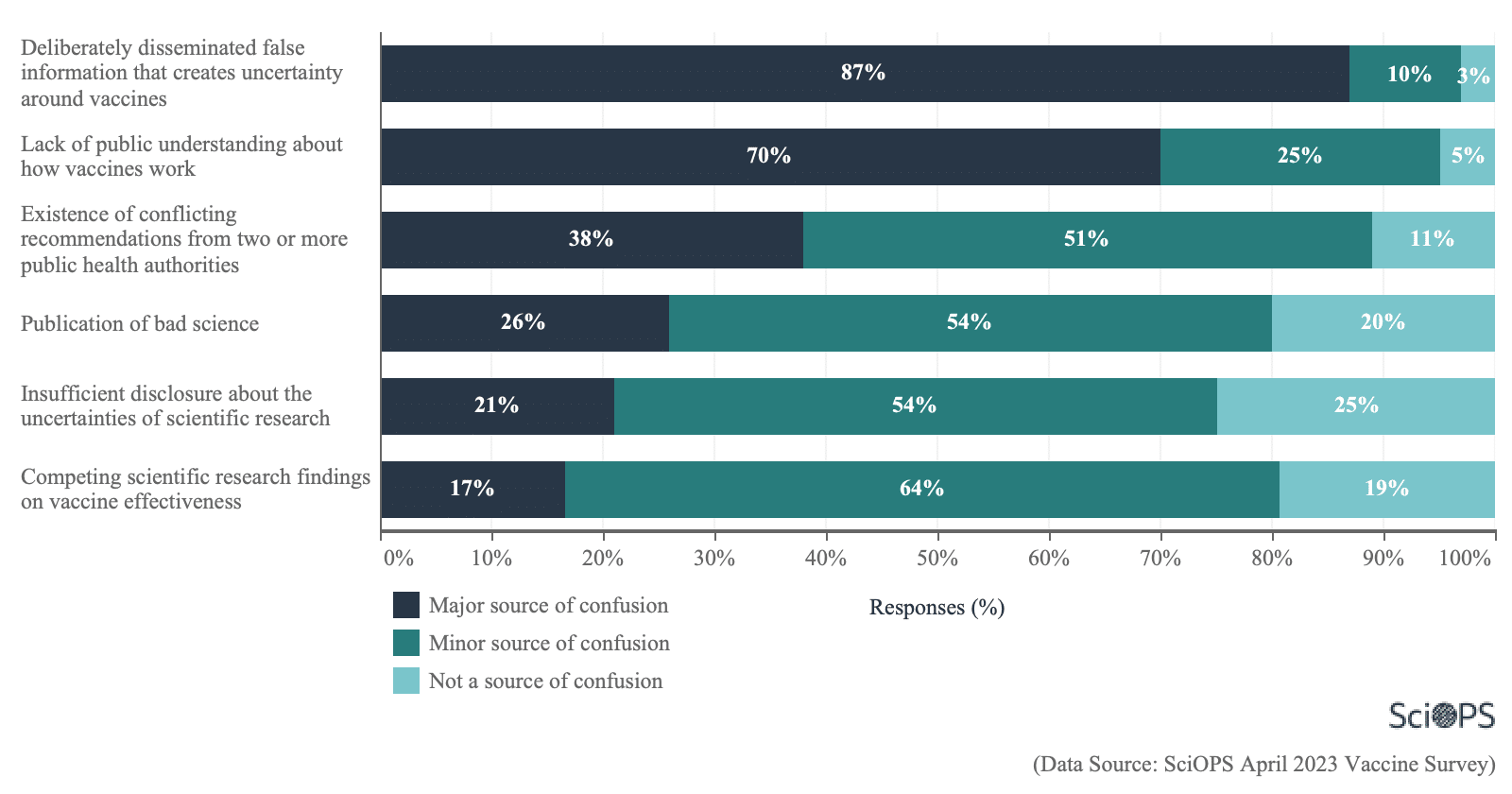
Finding
Most scientists believe that deliberate dissemination of false information (87%) and lack of public understanding (70%) are the major sources of public confusion.
More than one-third (38%) also believe that conflicting recommendations from public health authorities are a major source of public confusion.
Respondents reported that publication of bad science (26%), insufficient disclosure about the uncertainties of scientific research (21%), and competing scientific research findings regarding vaccine effectiveness (17%) are major sources of public confusion.
